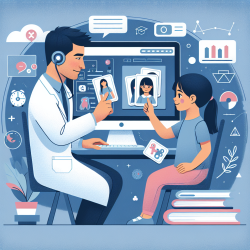The gap between academic training and clinical practice in geriatric speech-language pathology (SLP) is a significant concern in Canada. The study "The gap between geriatric speech-language pathology curricula and clinical practice: A Canadian perspective" by Audrey E. Brown and J.B. Orange highlights this issue and suggests that enhancing dialogue between academics and clinicians can bridge this gap. Here's how practitioners can implement these findings to improve their skills and provide better care for older adults.
Understanding the Research Findings
The research identifies a disparity in the education and training provided by Canadian universities and the clinical needs of practicing SLPs. Key findings include:
- Variability in the scope and type of instruction on aging and communication disorders.
- Clinicians' dissatisfaction with their education and training in geriatric SLP.
- The need for enhanced dialogue between academic institutions and clinical practitioners.
Practical Steps for Clinicians
To address these gaps, clinicians can take the following steps:
- Engage in Continuing Education: Seek out courses and workshops focused on geriatric SLP to stay updated on the latest research and clinical practices.
- Collaborate with Academic Institutions: Participate in discussions and partnerships with universities to help shape the curriculum and ensure it meets clinical needs.
- Mentorship and Peer Learning: Establish mentorship programs where experienced clinicians can share their knowledge and expertise with newer practitioners.
- Utilize Online Resources: Take advantage of online platforms and webinars that offer specialized training in geriatric SLP.
Encouraging Further Research
Practitioners should not only rely on existing knowledge but also contribute to the body of research in geriatric SLP. This can be achieved by:
- Conducting Case Studies: Document and share unique cases to contribute to the understanding of geriatric communication disorders.
- Participating in Surveys: Engage in national surveys and studies to provide data that can inform future educational needs and clinical practices.
- Collaborative Research Projects: Work with academic institutions on research projects that explore new methodologies and interventions in geriatric SLP.
Conclusion
By taking these steps, practitioners can enhance their skills and provide better care for older adults, ultimately bridging the gap between education and clinical practice in geriatric SLP. To read the original research paper, please follow this link: The gap between geriatric speech-language pathology curricula and clinical practice: A Canadian perspective.










